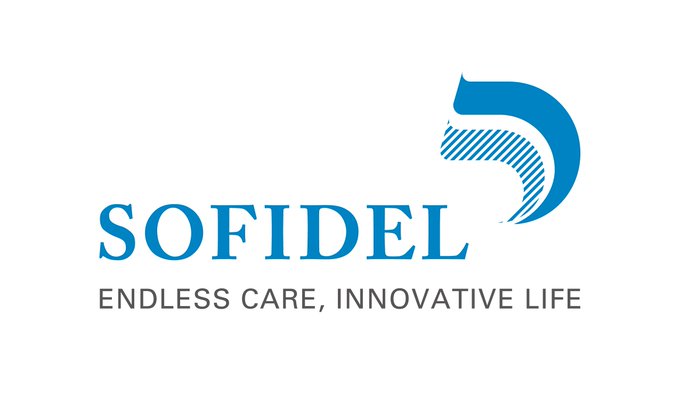Sofidel: Building a Better Future

Within Agenda 2030, the action program for people, the planet and prosperity (signed in September 2015 by the governments of the 193 member countries), Sofidel intends in particular to contribute to pursuing the following Sustainable Development Goals (Sustainable Development Goals – SDGs).
Health And Well Being
Sofidel is committed to promoting the health, safety and psycho-physical well-being of its employees.
The Group believes that a real and lasting improvement in workers' well-being can be achieved by sharing good practices, adopting a healthy lifestyle, improving the environment and work organisation, promoting active participation and the encouragement of personal development.
Sofidel pursues the promotion of the culture of health (from production environments to the hygienic-sanitary characteristics of its products up to their distribution) as one of the basic elements of its value creation process and as a factor in people's development.
Quality Education
Sofidel dedicates particular and constant attention to the training of the new generations, especially at a time when the ongoing digital revolution, Industry 4.0 and the new needs for sustainability are profoundly innovating the paper sector, with repercussions on production, products, logistics and distribution.
In particular, Sofidel's commitment is aimed at helping students, teachers, school administrators and academics to create more innovative, open and skills-based training, capable of constituting a real development factor for the entire district. A work of safeguarding, transmitting and increasing the heritage of professionalism to help students acquire high-level skills and better equip companies to face global competition.
Clean Water and Sanitation
Aware of how precious the water resource is for the survival of the planet, Sofidel is attentive to the correct management of water and its production processes are constantly monitored in order to optimize its use. The objective of rationalizing water consumption is pursued through management measures, specific investments and wastewater reuse policies.
Sofidel aims to achieve a production process that is as efficient as possible, i.e. "closed cycle" , with water drawn from the environment reused for several production cycles. A substantial part of the non-recoverable water is instead reintroduced into the environment as water vapour, during the final part of the paper drying process, while the remainder, once treated through purification plants, is returned to the environment.
Clean and Affordable Energy
The papermaking process is an energy-intensive activity. In order to reduce the impact on natural capital and favor the transition towards a low carbon emission economy, Sofidel is attentive to the sustainability of the energy sources used and the energy efficiency of its plants and processes. Since 2009, the Group has been engaged in energy efficiency activities and in reducing emissions from its plants, through investments in biomass, cogeneration, photovoltaic and hydroelectric power.
Sofidel also implements a " strategy of geographical proximity " of the plants to the end customers, which translates into a dislocation of the European production sites at a distance of 350/400 km from customers and 700/800 km for those in the USA. This leads to fewer kilometers traveled by means of transport and a reduction in CO emissions2.
Responsible Consumption and Production
Containing environmental impacts, reducing waste and promoting responsible consumption are the basic attitudes of Sofidel's development policies. The goal is to create products with an ever smaller ecological footprint and at the same time more performing. Products that contain lower shares of natural capital thanks to the higher functional qualities of the production plants and technologies used.
From the introduction of more sustainable packaging to the development of a new generation of products: Sofidel works to offer the markets tissue paper with higher performance and achieve higher efficiency from the point of view of the production process, with consequent advantages also in terms of environmental sustainability.
Act For the Climate
Sofidel's sustainable approach has made it possible to significantly reduce the environmental impact of production. n particular, Sofidel is the first Italian manufacturing company, and the first in the world in the tissue sector, to have joined the WWF Climate Savers international program in 2008, aimed at leading companies in the "low carbon economy", and which presents particularly ambitious objectives to reduce its direct and indirect CO emissions2 and increase the use of renewable energies.
In 2020, the Group obtained Science Based Targets initiative (SBTi) approval of its 2030 greenhouse gas emission reduction targets. The Sofidel targets (scope 1 and 2) have been recognized in line with the levels required to achieve the objectives of the Paris Agreement, and with what is deemed necessary by the most recent climate science evidence to prevent the worst impacts of change climate.
Life on Earth
"To protect, restore and promote sustainable use of the terrestrial ecosystem". Sofidel's commitment to safeguarding forest heritage and biodiversity translates into the procurement of 100% cellulose (used as a raw material in the production process) certified by independent third parties with forest certification schemes, such as FSC® and PEFCtm In particular, a large part of the Consumer and private label (MDD) production is FSC certified®(Forest Stewardship Council), a non-governmental and independent organization, created to promote the responsible management of forests and plantations globally. Sofidel also adhered to the Vancouver Declaration in 2017 , launched as part of the FSC General Assembly, a public pledge with which companies around the world are committed to a more sustainable forest products supply chain.
Goal Partnership
Sofidel believes in dialogue and collaboration. For this you have started a network of relationships with authoritative partners to share knowledge and experience and pursue common goals. The sustainable development agenda requires partnerships between governments, the private sector and civil society. These inclusive partnerships, built on principles and values, a common vision and shared goals, are needed at the global, regional, national and local levels.
In addition to institutional collaborations and those of a technical-educational nature with Higher Institutes and Universities, Sofidel has also activated partnership relationships through its own brands and products.

